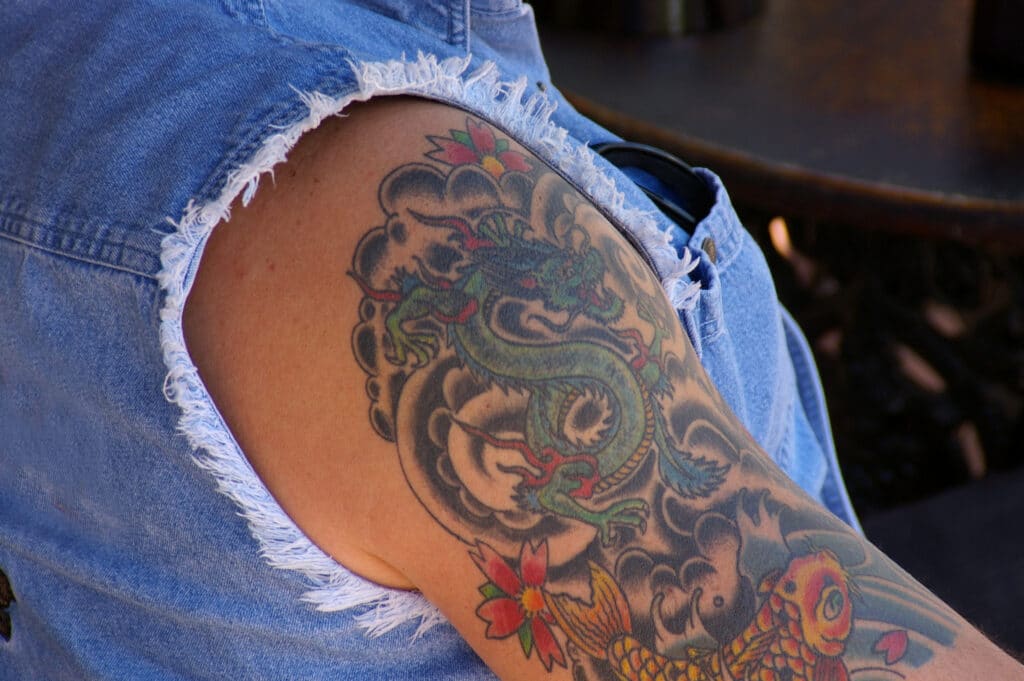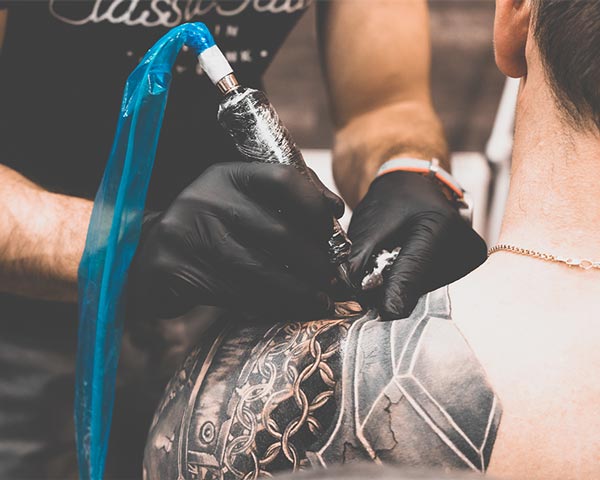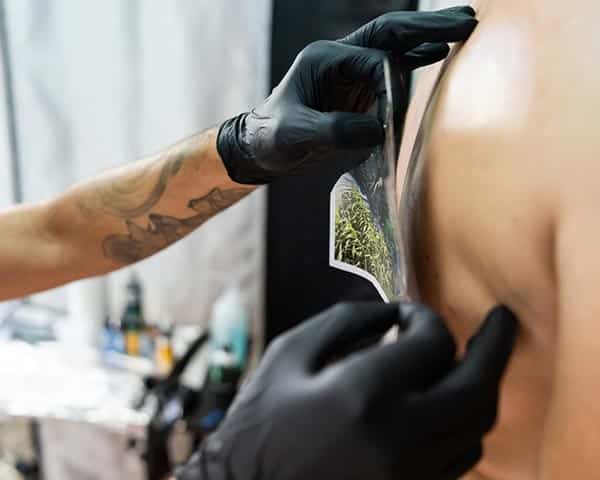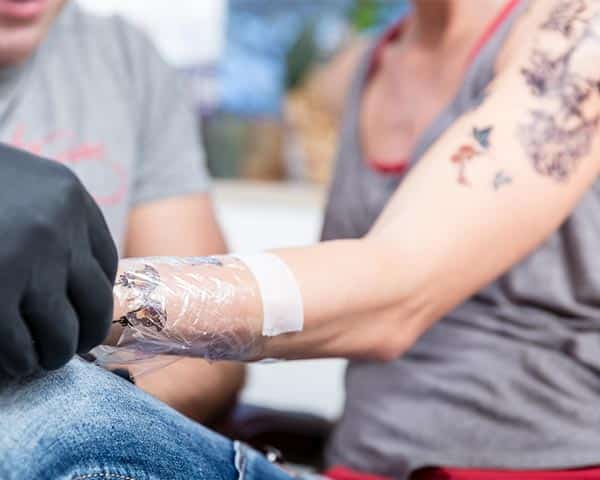How to Manage Customer Expectations: Tattoo Fading
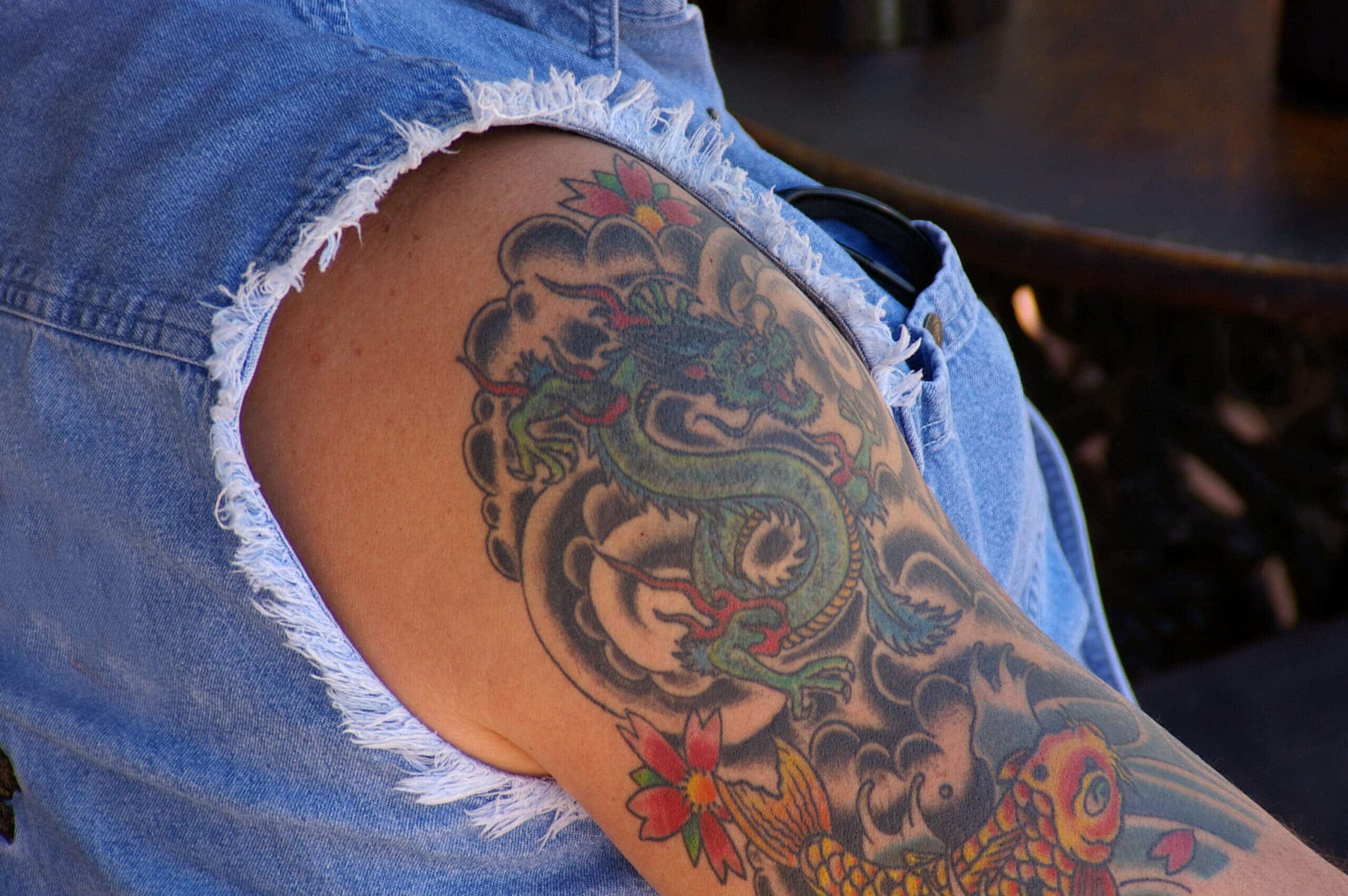
Every good tattoo artist knows that a tattoo is at its best right after it’s finished healing. The lines are clear, the colors are bold, and the black is dark as night.
That said, time takes its toll on all things, tattoos included. While a good tattoo stays beautiful regardless of how long you have it on your body, tattoos do change.
There are a few factors involved in how a tattoo changes and fades over time. Tattoo fading is inevitable (in small amounts), and helping clients understand why that happens and how to keep their tattoos as fresh as possible will help make sure that they take care of your work and know that you’re (probably) not at fault.
Not sure what to tell your customers about tattoo fading over time? We’re here to help. Keep reading to learn more.
Color Matters
Not all ink colors are alike. Even high-quality inks vary when it comes to their longevity, and that variance is often based on color.
You’ll notice that many tattoos are done in dark and bold tones like reds, blues, and greens. Some are even in all black. This isn’t only because of aesthetic preferences. These colors are more successful when it comes to fading.
While bright and vibrant colors like hot pinks and teals look great when they’re first done, they will fade more over time. This is also true for the “washed out” look of “watercolor tattoos.” We’ll discuss styles later on in the article.
There’s nothing wrong with getting a tattoo in a color that’s more likely to fade. It does, however, mean that your client needs to be ready for fading and that they need to plan for touch-ups if that’s important to them.
Bold Will Hold
Tattooers who use bold lines know that their tattoos are more likely to hold up over time, but how can you convince your client of this when they have a different style of tattoo in mind?
Your client is allowed to want fine line tattoos or tattoos without black lines. When they choose something like this, though, you should make them aware that it makes sense that these tattoos are more likely to fade. This is also true of the “watercolor tattoo” fad that uses few, if any, lines and washed-out colors.
The reason that American Traditional tattoos hold up so well is that they have bold black lines and colors. While they do fade (as all tattoos do), the image will never become obscured as long as the tattoo was done well.
While fine line tattoos are beautiful, make sure that your client knows that they’re harder to keep in good condition.
Placement Is a Factor
Many clients don’t consider placement when it comes to the longevity of their tattoos. Their lifestyles and tattoo placement work together to determine how long a tattoo will hold up.
Tattoos on the palms, bottoms of the feet, and inside of the lip (as was the trend a few years ago) are going to fade quickly. These parts of the body get a lot of wear and tear (meaning we’re often using them).
While ink does go under the skin, we’re constantly shedding layers of skin. Places that get more wear shed faster.
When it comes to lifestyle, this also matters for placement. For example, if your client lifts weights and frequently has a barbell on their shoulders or hips, tattoos in those areas may fade faster.
There’s a reason that so many bold tattoos are on arms, chests, and legs. They hold up better!
Technique Matters
This is where the skill of a tattoo artist matters, but also client preference.
Some tattooers who are still going through training or who had insufficient training may not use the best techniques. They may apply too much (or not enough) pressure. Too much pressure results in blurry tattoos and faded blowouts. Not enough results in tattoos that aren’t as secure in the skin.
Sometimes clients want a soft hand because they’re sensitive to pain. If this is the case, tell them the consequences and try to convince them otherwise.
Aftercare Is Key
One of the biggest factors in tattoo fading is aftercare. You need to make sure that your clients know that they have control over the quality of their tattoos.
It’s important for your client to follow all standard aftercare instructions. Whether you ask them to clean and apply Aquaphor from day one, or you use Saniderm, you ask for a reason, right?
They also need to keep their tattoos out of the sun. This isn’t only true right after the tattoo is done, though. If they keep their tattoos from sun damage for the rest of their lives, their tattoos are more likely to stay bolder for longer.
Many people think that tattoo care ends when the tattoo is done healing. They neglect sunscreen or coverings on hot and sunny days, and then they find that their tattoos are faded in a matter of years.
Clients should avoid excess exfoliation or clothes rubbing on the tattoo location and they should moisturize often to keep their skin healthy and their tattoos looking nice.
Tell your clients that aftercare isn’t just for their safety, but it’s also for their happiness with the tattoo.
Teach Your Clients About Tattoo Fading
While a small amount of tattoo fading is inevitable, a client can take steps to ensure the longevity of their tattoos. By choosing darker colors, bolder lines, and styles that hold, they can enjoy their tattoos for years to come as long as they take care of their skin.
A good tattoo is a lifetime of artwork. Make sure that your clients can enjoy it.
Are you looking for an easier way to schedule appointments, manage client payments, and streamline the tattoo paperwork process? Give us a try. Inkbook makes everything easier so you can focus on your art. Start your free trial today.
